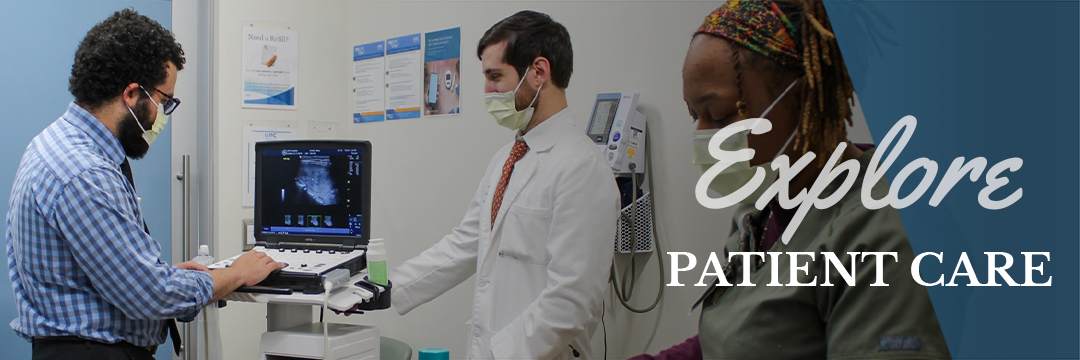Clinic Services
Our outpatient clinical services include clinic-based consultations and ongoing care, as well as procedures unique to endocrinology. Learn more about UNC Eastowne.
We offer clinic-based consultations and ongoing care for:
- Diabetes Mellitus – type 1 diabetes, type 2 diabetes, cystic-fibrosis related diabetes (CFRD), post-transplant diabetes, gestational diabetes
- Thyroid disorders – hyperthyroidism including Graves’ disease, hypothyroidism, thyroid nodules, multinodular goiter, thyroid cancer
- Parathyroid, calcium, and metabolic bone disorders – osteoporosis, hyperparathyroidism, hypercalcemia, vitamin D disorders, Paget’s disease of the bone, osteogenesis imperfecta
- Pituitary disorders – hyperprolactinemia, acromegaly, Cushing’s disease, hypopituitarism, pituitary tumors or adenomas
- Adrenal disorders – adrenal insufficiency, congenital adrenal hyperplasia (CAH), Cushing’s syndrome, hyperaldosteronism, pheochromocytoma or paraganglionoma (PPGL), adrenal nodules or masses
- Gonadal disorders – male and female hypogonadism, polycystic ovarian syndrome (PCOS), amenorrhea, gynecomastia, hirsutism, hyperandrogenism, Kleinfelter’s syndrome, Turner’s syndrome
- Polyglandular (multi-gland) endocrine disorders – multiple endocrine neoplasia type 1 and type 2 (MEN-1 and MEN-2), autoimmune polyglandular syndrome (APGS)
- Transgender medicine – gender affirming hormone therapy
- Post-bariatric surgery hypoglycemia
Learn more about our multidisciplinary approach in the treatment of thyroid, parathyroid, adrenal, and pituitary tumors.
We offer the following procedures and ancillary services in our clinic on the third floor of the Eastowne Building:
- Download and interpretation of glucometers, personal CGMs, and insulin pumps as part of the clinic visit
- Placement of professional CGM for 10- to 14-day glucose monitoring
- Biopsy of thyroid nodules
- Provocative testing necessary for diagnosis of endocrine conditions:
-
- Cosyntropin (ACTH)-stimulation test
- Oral glucose tolerance test
- Growth-hormone stimulation test
- Modified water deprivation test
- Modified supervised fast and “mixed meal” test
- Injections of denosumab (Prolia) and romozosumab (Evinity) for patients with osteoporosis who are prescribed these medications by our providers
We offer the following procedures and ancillary services in the infusion center and in the radiology suite on the first floor of the Eastowne Building:
- Zoledronate (Reclast) infusions for patients with osteoporosis
- Thyroid and neck ultrasound, CT scans, DEXA (bone density scans), Xrays
